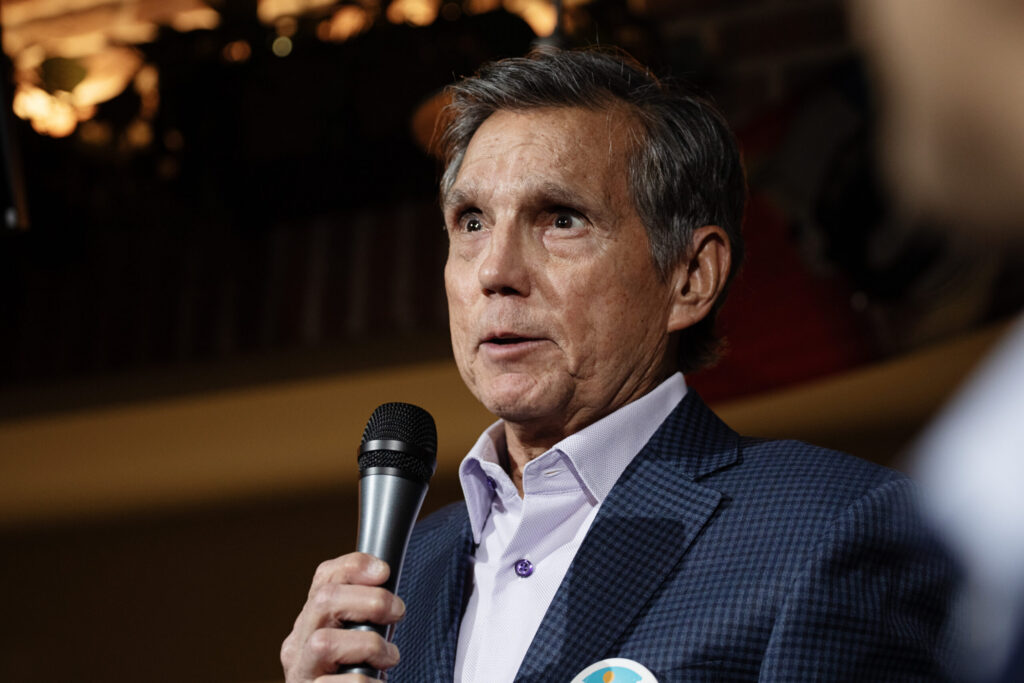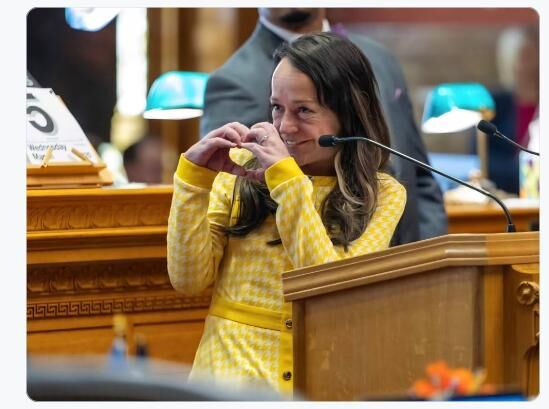State Senate Democrats shoot down income tax rate cut applauded by Polis

While Colorado Gov. Jared Polis says he favors reducing Colorado’s income tax rate, Democrats in the state legislature, especially those on the Senate Finance Committee, don’t appear to be singing the same song.
In his State of the State address to lawmakers Jan. 10, Polis spoke of “working with you to make our tax code more fair, so that we can reduce rates for Colorado families and small businesses.”
On Jan. 17, Polis, using his personal Twitter account, thanked Sen. Jerry Sonnenberg of Sterling and Rep. Rod Pelton of Cheyenne Wells, the Republican sponsors of Senate Bill 55, which would lower the state’s individual and corporate income tax rate from 4.63 percent to 4.49 percent.
“Thank you, @JerrySonnenberg and @RepRodPelton, for offering tax relief for ALL Coloradans. I look forward to working with you to achieve even lower rate than 4.49%, coming up w/agreeable ways to reduce tax expenditures to ensure revenue neutrality,” Polis tweeted.
But on Tuesday, when the Senate Finance Committee held a hearing on SB 55, no one showed up to testify in favor of it, including anyone from the Polis administration.
The committee voted along party lines to kill the bill.
SB 55 is Sonnenberg’s second attempt at an income tax rate cut in as many years.
The bill would have cost the state $280 million in reduced revenue in fiscal year 2019-20, a price tag opponents said would result in cuts to education when the next recession hits.
During the hearing, Sonnenberg told the committee that the state has a $1.6 billion surplus, on top of a $1 billion surplus in fiscal-year 2018-19. His bill would have shaved off just under $300 million from that surplus, he said.
The bill also would have lowered the alternative minimum tax, which is paid by high income earners, by 0.4 percent.
Polis advocated an income tax rate cut on the campaign trail; in his State of the State address, he said he would support a rate cut of 3 to 5 percent.
In his address, Polis hinted at some of the ways he might seek such a cut, including closing loopholes in tax deductions that benefit big corporations.
He also went after the tax law passed by Congress and backed by President Trump in late 2017, which he called “giveaways to the most influential corporations in the country.”
“Some big businesses pay less, while many families here in Colorado have to pay more,” Polis said during the address. “We should not blindly copy President Trump’s policies into our state tax code.”
A tax reform measure reflecting Polis’ goals is expected to be introduced later in the session.
Prior to Tuesday’s hearing, Sonnenberg told Colorado Politics that he had not talked to the governor about his bill, nor had the governor attempted to contact him about it.
“I see a linkage” between the governor and the General Assembly on this, Republican Sen. Paul Lundeen of Monument had said ahead of the vote.
But Democratic legislators did not.
Committee Chair Sen. Lois Court of Denver told Sonnenberg that they would never see eye to eye on a tax cut, and she hinted at one part of Polis’ tweet from Jan. 17: that a tax cut had to be revenue neutral.
Sonnenberg tried to leverage Polis’ apparent support, starting off his review of the bill by mentioning the governor twice.
“The governor has talked about an income tax reduction,” Sonnenberg pointed out. “The governor is a smart businessman” when it comes to reducing taxes, he added.
But opponents, including the left-leaning Colorado Fiscal Institute, pointed out that wealthy Coloradans would see more of a benefit from Sonnenberg’s bill that middle-income Coloradans.
Chris Stiffler, an economist with the institute, pointed out that earners who make more than $1 million per year would get an average cut of around $1,200, but those at the lower end of the income scale would see just a few dollars.
Stiffler also noted that one out of four Coloradans has no tax liability after deductions and other credits are taken into account, so the bill wouldn’t help them.
Former state Sen. Evie Hudak, who represents the education-related nonprofit Colorado PTA, said a permanent tax reduction would cause trouble once Colorado hits another recession.
RELATED: Polis’ revised budget proposal includes full-day kindergarten plan
This was exactly what happened in the late 1990s, when the Republican-controlled General Assembly, with the signature of Gov. Bill Owens, reduced the state income tax rate from 4.75 percent to its current 4.63 percent, she noted.
And Rich Jones of the left-leaning Bell Policy Center said a permanent reduction would impact the state’s ability to pay for higher education, K-12 education, affordable housing and child care. It’s better to invest those dollars for the public good, he said.
While there are a dozen bills that propose tax credits still alive in the 2019 session, there are no other measures already introduced that seek to reduce the state’s income tax rate.
Republicans took advantage of the split between Polis and the Democrats over an income tax cut, issuing a statement after the hearing that said it was “unclear whether Democrats intend to entertain the idea of an income tax decrease in the future, despite Governor Polis’ plans.”
“It’s unfortunate that reducing the income tax rate was a non-starter for Democrats, especially since Governor Polis has indicated his support for a proposal that does so,” said Republican Sen. Rob Woodward of Loveland in that statement.
Polis is scheduled to present his plan for full-day kindergarten Wednesday morning to a joint meeting of the Senate and House education committees.
Senate Democrats on the Joint Budget Committee, while supportive of the idea, have raised concerns about the $227 million price tag and how it will be paid for in future years.
Editor’s note: This story was updated at 7:05 p.m. to correct the date of the State of the State address.














